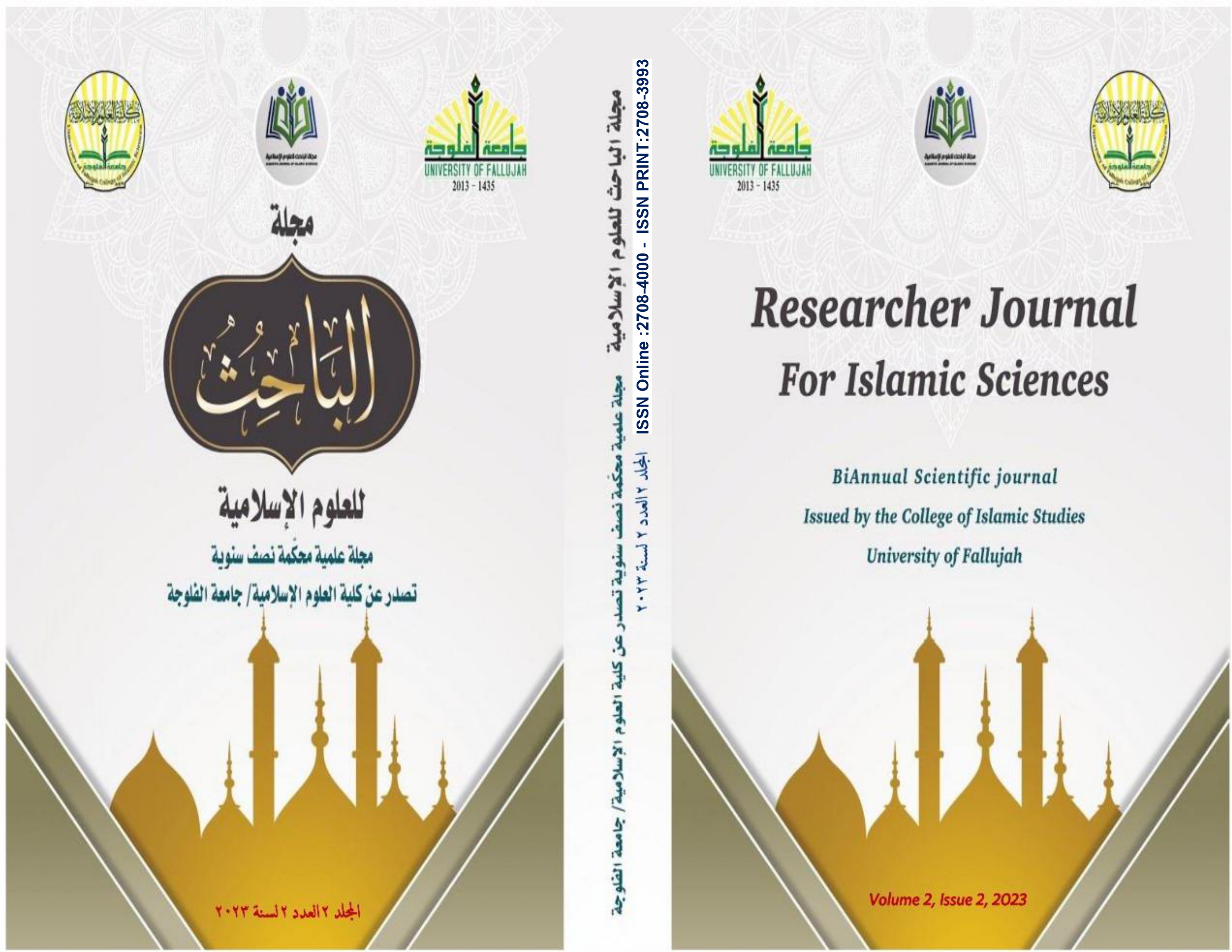The word “not trustworthy” according to Imam Al-Nisa’i in his book “The Weak and Abandoned”, Selected Examples, Critical Study
Abstract
After trusting in God, I spoke in the folds of this research about examples of narrators whom Imam Al-Nasa’i called a word that is not trustworthy in his book, The Weak and the Forsaken. I mentioned his sheikhs and Imam Al-Nasa’i has many sheikhs because of his travels, among the most famous of them are Ishaq bin Rahwayh, Qutaiba bin Saeed, Ahmed bin Manea and others, and he narrated from his peers the likes of Abi Dawood Suleiman, Suleiman bin Ayyub and others, and he narrated many manners and that is because Imam Al-Nisa’i asked for knowledge when he was young. His scientific life is more than seventy years, and the memorizers of the students of knowledge from different parts of the earth have passed to him, such as Abu Awana bin Ishaq, Abu Jaafar Ahmed bin Muhammad Al-Tahawi and others. It was admitted to him by everyone who knew him and heard from him, then it was known by the word “not trusted” and its meaning was clarified in language and terminology. And I showed the purpose of Imam Al-Nisa’i with it, and its rank according to Al-Iraqi, Al-Dhahabi, and Al-Sakhawi. Then I mentioned examples of the narrators Whom Imam Al-Nisai Called them not trustworthy in his book The weak and Abandoned. The Critics' Sayings were presented in each narrator. I have studied the sayings CritiCall.Then,I have indicated the Correct opinion each narrator.
Keywords:
Al-Nasa’i, Al-Dhu’afa wa Al-Matroukun, not trustworthy.Downloads
Published
How to Cite
Issue
Section
License
Copyright (c) 2023 Researcher Journal of Islamic Sciences

This work is licensed under a Creative Commons Attribution-NonCommercial-NoDerivatives 4.0 International License.
تجربة






